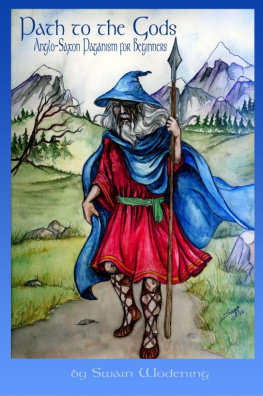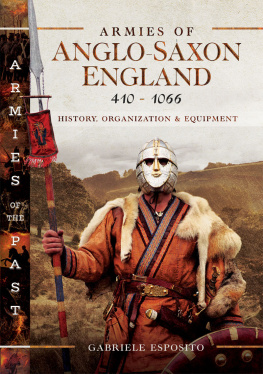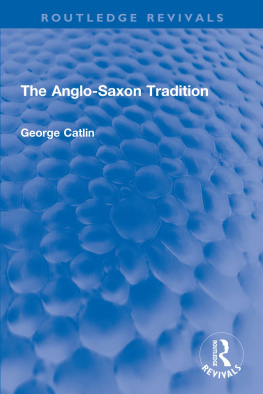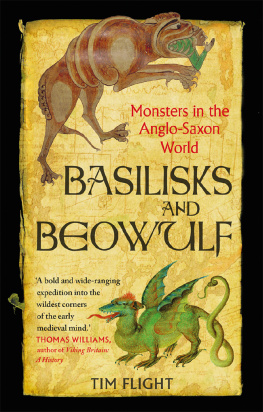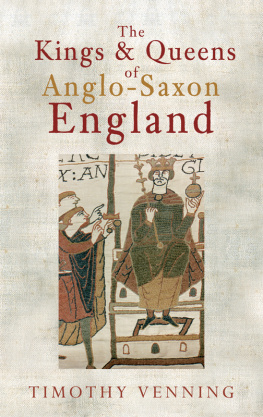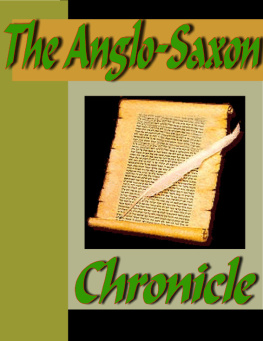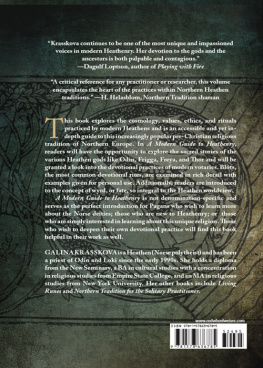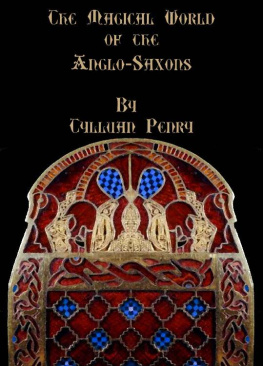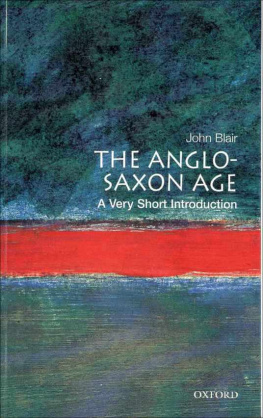Path to theGods
Anglo-SaxonPaganism for Beginners
by SwainWdening
Published byWodening Publishing Company at Smashwords
Edited by JeffWolf
Cover art anddesign by Saga Erickson
Copyright 2012Swain Wodening
This ebook islicensed for your personal enjoyment only. This ebook may not bere-sold or given away to other people. If you would like to sharethis book with another person, please purchase an additional copyfor each recipient. If you're reading this book and did notpurchase it, or it was not purchased for your use only, then pleasepurchase your own copy at the one of the various online ebookvendors. Thank you for respecting the hard work of this author.
This book isdedicated to my son in hopes that he will have many others toworship with in the future.
Table ofContents
Before webegin, you need to know a few things. The Anglo-Saxons were a groupof tribes that invaded what is now England about 1500 years ago.Our language English is descended from theirs; anyone of Englishdescent is descended from them. English-speaking countries owe muchof their culture to the Anglo-Saxons. They were considered Germanictribes, that is, they spoke languages related to modern English,German, Dutch, Swedish, Danish, and Norwegian (these are allGermanic languages). A pagan is anyone that is not Christian,Muslim, or Jew. Paganism is any religion that owes nothing toChristianity, Islam, or Judaism. Pagan religions tend to have manygods and goddesses. Anglo-Saxon paganism is often calledAnglo-Saxon Heathenry. Heathen is another word for pagan, andheathenry is another word for paganism.
This is not thefirst book on modern Anglo-Saxon paganism, or even the second. Thefirst was my book Hammer of the Gods: Anglo-Saxon Paganism inModern Times. When I wrote Hammer of the Gods: Anglo-SaxonPaganism in Modern Times almost ten years ago. I never dreamed thesuccess it would have. Between it and its second edition it hassold over two thousand copies. This is quite phenomenal for a bookwith such a small audience. However, one complaint that often cameup was that it was too advanced for those just starting out inAnglo-Saxon paganism. It assumed that one already knew ofAnglo-Saxon paganism, and knew a bit about it. At the time it firstsaw print, this was not a problem. Most folks were coming from abackground in Asatru (pronounced Ahsa-true), the related religionbased on that of the Vikings, and therefore were already familiarwith many of the concepts, myths, and virtues, and only needed themput in an Anglo-Saxon pagan perspective. Therefore, there was noneed for a glossary, or to explain things in simple terms. The onlyneed there was, was to give the reader an Anglo-Saxon Heathenviewpoint. Since then, things have changed. Many, if not most folkscoming to Anglo-Saxon paganism are coming from differentbackgrounds with only the barest of knowledge concerning the oldpagan religions. Thus, this book is meant to meet the need forsomething simple and straightforward.
This book is abook meant for beginners. It is not meant to be a scholarly work.You will not find citations for the sources unless it is somethingdirectly quoted. Almost all of Path to the Gods is commonknowledge to one that has been practicing Anglo-Saxon paganism forsome time. If one wishes a book that provides extensive citations,or something more advanced, they are advised to pick up a copy ofthe second edition of Hammer of the Gods: Anglo-Saxon Paganism inModern Times. You are encouraged after reading this book, to pickup a copy of that work anyway.
From this bookyou will learn what Anglo-Saxon paganism is. You will learn that itis a polytheistic religion, one that has many gods and goddesses.You will learn that Anglo-Saxon paganism has no creed, but reliesinstead on custom and tradition. You will learn who theAnglo-Saxons were and why they are relevant to todaysEnglish-speaking world. You will learn what a god is, that a god isa very powerful spirit that seeks to help Mankind, and who theAnglo-Saxon pagan gods and goddesses are. You will learn aboutwyrd, and how it determines the path of your life. You will learnthe virtues of Anglo-Saxon paganism. Finally, you will learn how toperform the rites of Anglo-Saxon paganism, and the holy times toperform them on. If you do not learn these things, then I have notdone my job as a writer, and I profusely apologize. If you alreadyknow them, then I hope I have not bored you with repetition.
I first becameinterested in Germanic Heathenry when I was in the third grade. Ihad read a book called The Secret Hide-Out. In it was a clubcalled the Viking Club. This led me to look up the word Viking inthe encyclopaedia. I was hooked. From there I began to read aboutthe Vikings and their gods. I came to Anglo-Saxon Heathenry in 1989when I was 26. I had been Asatru for about four years, and wishedto follow a religion more closely to that of my English and Saxonancestors. At the time, the number of Anglo-Saxon pagans could becounted on ones fingers and toes. Indeed, I did not come incontact with other Anglo-Saxon pagans other than my brother until1993 when I learned of Garman Lord and Gert McQueen members of anAnglo-Saxon pagan group called the Wnland (pronounced win-land)Rce (pronounced reech-a). For many years there were not manyAnglo-Saxon pagans, but as the Wnland Rce grew, there was moreand more interest in Anglo-Saxon paganism. In 1996, Winifred HodgeRose and I founded the Anglo-Saxon Ealdriht, and in a few years,Anglo-Saxon Heathenry exploded. By the time the Ealdriht dissolvedin 2004 there were hundreds of Anglo-Saxon pagans. In 2003, Hammerof the Gods: Anglo-Saxon Paganism in Modern Times was publishedfurther spurring the growth of Anglo-Saxon paganism. There are nowover thirty-three Anglo-Saxon pagan groups with hundreds if notthousands of adherents to Anglo-Saxon paganism. Needless to say thegrowth of Anglo-Saxon paganism has been phenomenal.
With all thisgrowth, I saw a need for a more basic book, one that someone thathas never heard of the Anglo-Saxons would be able to pick up, andbegin practicing Anglo-Saxon paganism. It is hoped this book willbe simple enough that anyone can understand, yet advanced enough togive one a firm grounding in the beliefs of the modern Anglo-Saxonpagan. In the back of the book you will find a glossary with manyof the more foreign terms defined. Also there you will find apronunciation guide to help with pronouncing many of the OldEnglish (Old English was the language of the Anglo-Saxons) wordsused in this book. Along the way I try to provide pronunciationsfor many of the names and words you may not be familiar with.Finally, there is a reading list (in addition to a bibliography)that will lead you to other books to read about Anglo-Saxonpaganism.
This book isthe way I practice Anglo-Saxon paganism. It is not the waynecessarily that other Anglo-Saxon pagans practice, or even perhapsthat of the majority. It is my own way, and is based on years ofresearch into the old religion, and the practice of it by othersand myself. There are many different ways folks practiceAnglo-Saxon paganism, and if you ask ten Anglo-Saxon pagans howthey practice Anglo-Saxon paganism, you are likely to get tendifferent answers. Never the less, it is hoped this book can be ofuse to you. When finished, you are encouraged to read AlaricAlbertssons Travels Through Middle Earth: The Path of a SaxonPagan, if you have not already, and then my other book on thetopic Hammer of the Gods: Anglo-Saxon Paganism in Modern Times. Afinal note I use the words man, men, Man, and Mankind in a neutersense. If I wish to specify a member of the male sex I use the termwermen.
SwainWdening
Hremona, 1563wintra sian Englan tocyme.
March 2012
Anglo-Saxonpaganism goes by many names. Perhaps the most common is Anglo-SaxonHeathenry (called ASH for short). Others call it satrow(pronounced roughly ace-uh-tray-ow), Fyrnsidu (pronounced roughlyfurn-sid-eww), Saxon Paganism amongst others. satrow means faithin the gods, while Fyrnsidu means the old ways. Both are verydescriptive of Anglo-Saxon paganism. Anglo-Saxon pagans rely ontheir gods very much in their daily lives. They developrelationships with them, and give gifts to them in return for thehelp they give. So faith in the gods is a good way to describeAnglo-Saxon paganism. The old ways is also a good way to describeAnglo-Saxon paganism. Ancient Anglo-Saxon pagans had no word fortheir religion, and instead referred to it as sidu custom ortradition. The word Heathen comes from Old English hen, a wordwhose origin has been stated by scholars as a native word relatedto Greek ethnos nation, race or a gloss for Latin paganus "ruraldweller" meaning "dweller on the heath." The word pagan comes fromLatin paganus. Rural dwellers were the last to convert whenChristianity came to Europe. Therefore, words for a rural dwellercame to mean those that followed any of the old religions that hadmany gods and goddesses. Today, a pagan or heathen is anyone thatis not Christian, Muslim, or Jew. Heathen in the last twenty or soyears has come to mean one that follows the Germanic gods andgoddesses specifically.

